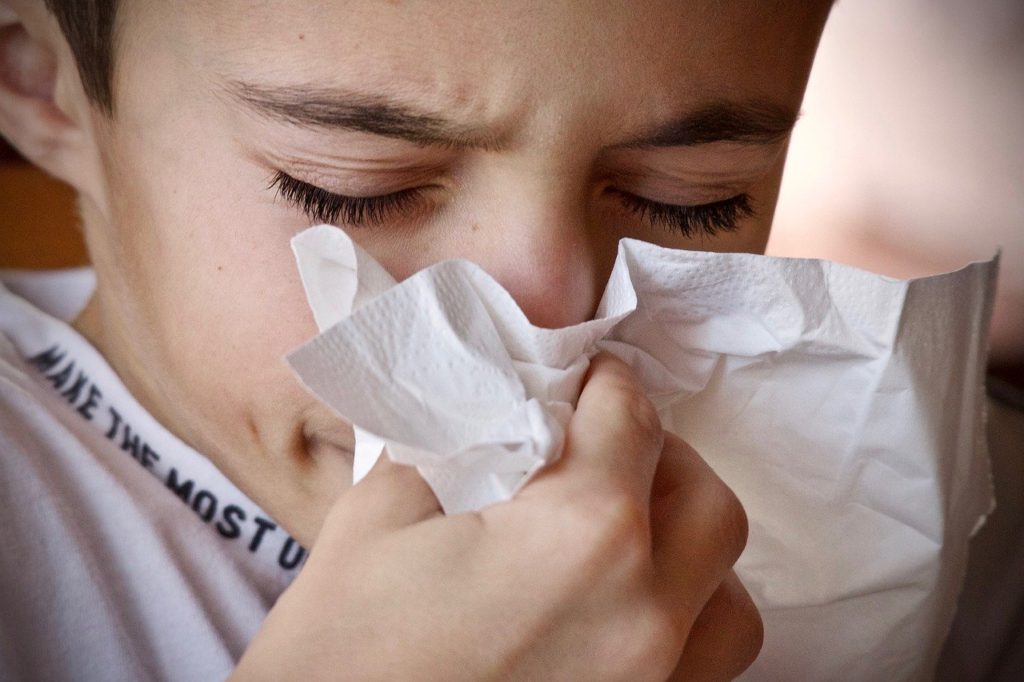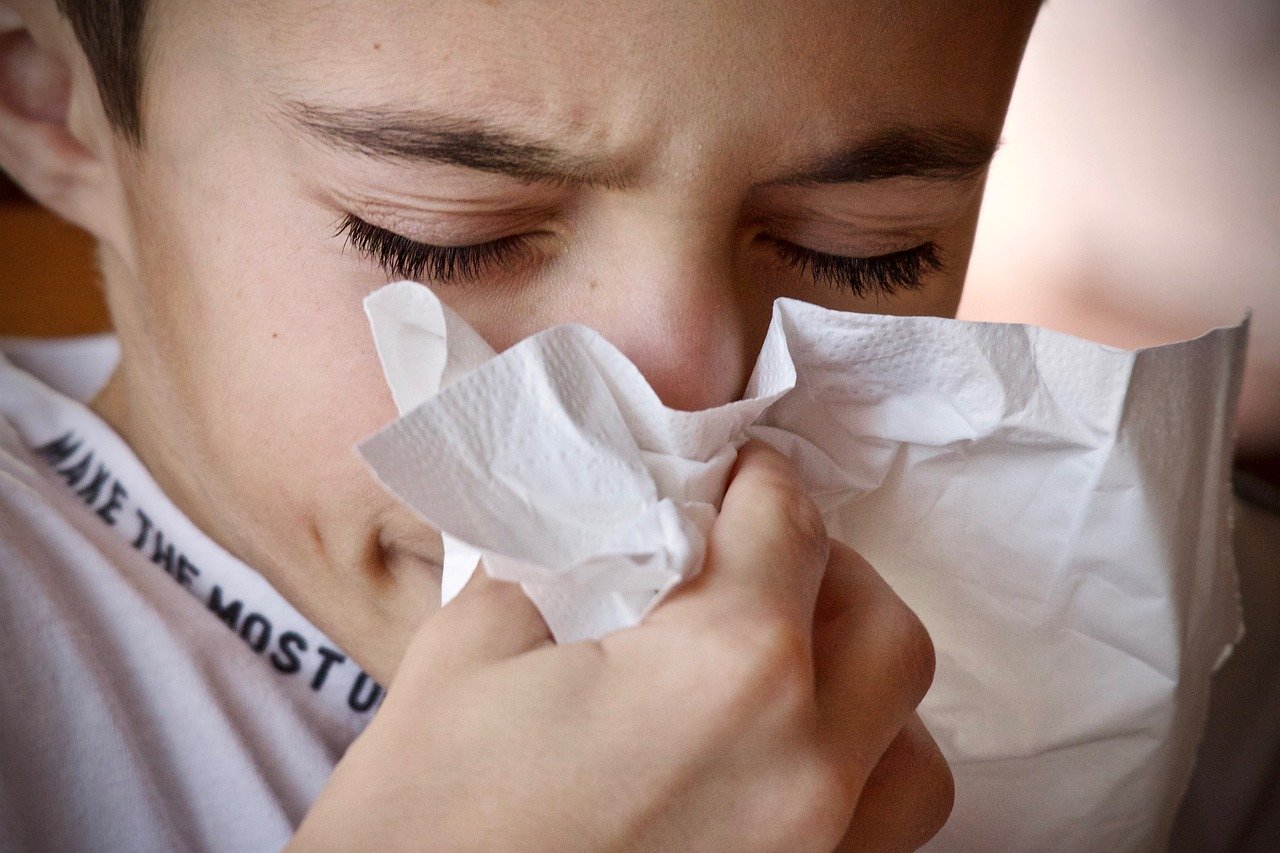
Allergies affect more than 50 million Americans every year. If you’re a part of those statistics, you know how uncomfortable the watery eyes, runny nose, sneezing, congestion, and other allergy symptoms are.
Spring is the perfect storm of allergens. With all of the beautiful new growth comes lots of pollen, the primary offender when it comes to seasonal allergies.
Having seasonal allergies remedies handy can help you minimize those annoying symptoms. Preventative steps are your best bet for reducing or avoiding allergy reactions to pollen.
Check out these options to help this spring.
Watch the Pollen Count
When you have allergies, it’s all about the pollen count. Lots of pollen in the air means your seasonal allergies will kick into overdrive.
Monitoring the pollen situation in your area lets you know when you need to be extra vigilant about protecting yourself and taking medicine preventatively.
Limit Outdoor Time
Whether or not the pollen count is high, time spent outdoors increases your chances of dealing with allergy symptoms. Limiting the time you spend outside can help you avoid the uncomfortable side effects.
You can’t avoid the outdoors completely but plan to spend more time indoors when your allergies are really acting up. Windy days can be particularly bad since pollen can travel via the wind, especially if it’s dry.
If you love spending time outdoors, try to wait until right after a rain. The rain helps remove some of the pollen from the air, so you may be able to enjoy the outdoors with fewer allergy symptoms.
Pollen tends to be the highest in the morning, so wait until later in the day if you plan to do outdoor activities.
Keep Windows Closed
Even when your indoors, the outside allergens can find a way into your home. Spring is the perfect time to open your windows, air out your house, and feel the cool breezes. But that also means you’re letting in the pollen and other allergens that drive you crazy.
Keep your windows closed as much as possible, especially on high pollen count days. This includes the windows in your car.
Run your air conditioning instead if your home or car gets too warm with the windows closed. A fan may seem like a good idea, but it can stir up any pollen, dust, and pet dander that’s in your home and make your allergies worse.
Use a HEPA Filter
A HEPA filter in your HVAC system can help remove allergens from the air. Use high-efficiency filters, and change them regularly to help keep your air cleaner.
You can also get portable HEPA air filters, which you can keep near you to reduce allergens in the air. This can be especially helpful next to your bed, so you can sleep comfortably with fewer allergens in the air.
A vacuum with a HEPA filter can also help clean allergens out of your home. Vacuum regularly to minimize allergens.
Cover Up
Covering yourself while you’re out can minimize how much pollen enters your system. Sunglasses can block some pollen from getting into your eyes.
If you have severe seasonal allergies, consider wearing a mask when the pollen count is high. This can be especially helpful when you’re mowing or working outside where pollen is stirred up.
Wash Regularly
You can’t spend all of your time indoors, so you’ll be exposed to some seasonal allergens when you go outside. That exposure doesn’t stop when you come indoors.
Pollen and other outdoor allergens can cling to your clothes, skin, hair, and shoes. You bring it into your home with you, which can continue to cause irritation.
Taking a shower when you get home can wash away the particles. It also helps to change your clothes right away and put them in the wash.
When you wash your clothes, dry them inside. Hanging them on a clothesline outside exposes them to all sorts of pollen, dust, and other potential allergens, which you then bring back into your home.
Rinse Nasal Passages
Using a nasal rinse kit can help get rid of allergens and bacteria that cause irritation. It can also help thin mucus to make you more comfortable.
Nasal rinse kits often include a neti pot or nasal bulb to flush your nasal passages with a saline solution.
Increase Your Liquid Intake
Staying hydrated during allergy season may help you feel better. Increased water intake may help thin your mucus, which can give you relief if you’re feeling stuffy or congested.
A hot cup of tea can also help. The steam from hot tea can provide extra relief. The same idea works for broth or soup with a broth base.
Try Natural Solutions
Alternative treatment options may give you some relief against your seasonal allergies. Butterbur is one natural treatment some people use for allergies. Spirulina, which is dried algae, may also help.
Always check with your doctor before you use natural allergy remedies. Natural doesn’t always mean the product is safe. Some natural products may interact with other medications you take.
Another natural approach some people use for allergies is acupuncture.
Use Allergy Medicine
Allergy medicines can give you relief or possibly prevent symptoms if you take it before you’re exposed. If over-the-counter medications don’t do the trick, talk to your doctor about prescription allergy medicine. You may be able to find your prescription on an international online pharmacy for easy fulfillment.
Antihistamine medications block the histamines in your system that cause allergy symptoms. You can take them before you feel symptoms to avoid the uncomfortable allergy side effects.
Decongestants can give you relief from congestion and mucus build-up. They work by reducing swollen nasal tissues that cause those symptoms.
Immunotherapy may be an option if you have ongoing allergy issues. Often given in shot form, this type of therapy gradually introduces the allergen into your body so your immune system can learn to fight it.
Seasonal Allergies Remedies
Instead of suffering from sneezing, running nose, and other symptoms this spring, arm yourself with seasonal allergies remedies. Many of the remedies can help you reduce or avoid the symptoms, so you feel more comfortable. Head to our blog archives to find more useful information.
Image: Pixabay
